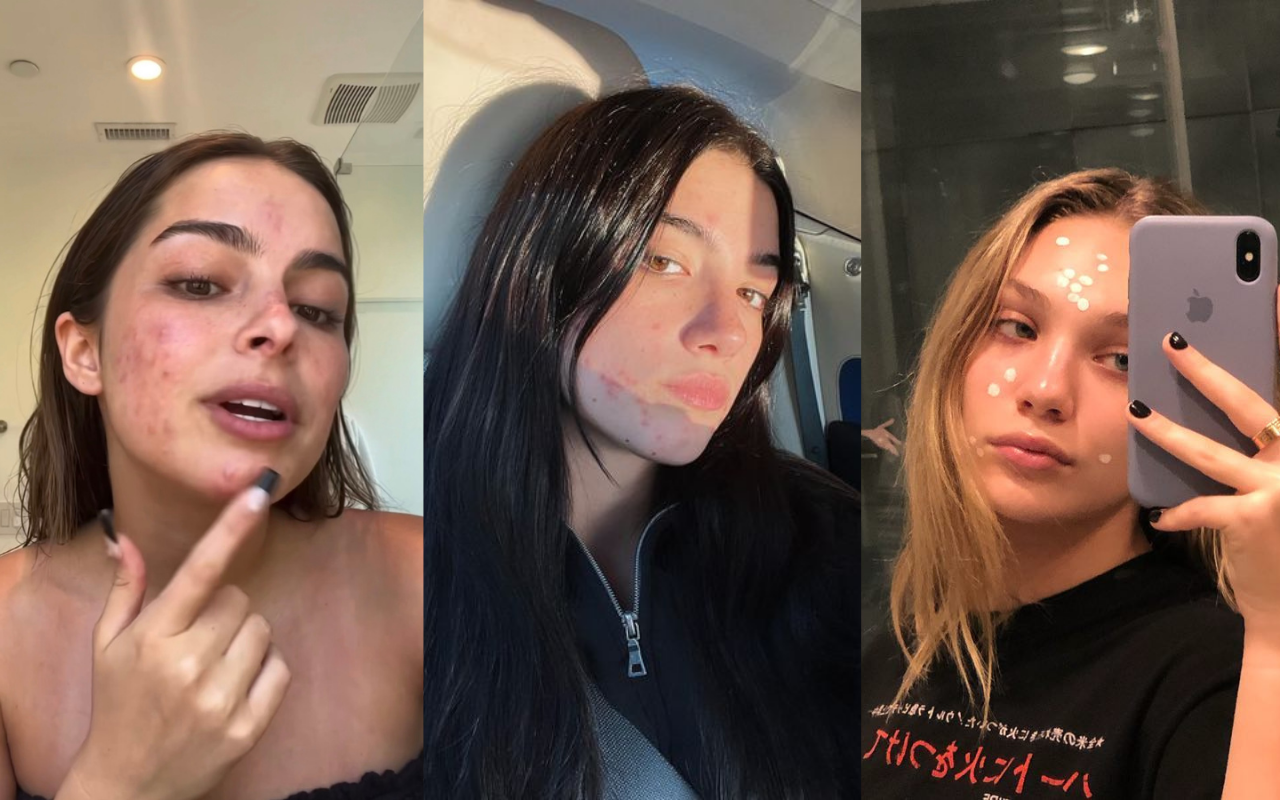
Thanks to TikTok, we all know That Girl. That Girl wakes up at 6:00am to go to the gym before work. That Girl drinks green juices out of glass mason jars with metal straws. That Girl works her 9-5 before finding time to cook a healthy meal, change her sheets, deep clean her bathroom, and fill out her five-minute journal before bed.
@kaylieestewart part 1 of becoming the best version of yourself in 2022 🤍🥬 #motivation #thatgirl #healthylifestyle #healthylifestylechange #fyp
♬ this is what falling in love feels like – JVKE
At the start of 2022, coupled with the hope of new year’s resolutions, everyone wanted to be That Girl. But it didn’t take long for internet critics to point out that the That Girl trope is simply the latest manifestation of toxic productivity and another set of unattainable goals. Hence, the anti-That Girl movement.
This movement isn’t just about opposing the That Girl aesthetic, but more a call to reality and authenticity. Because while it’s great to have goals for a healthy lifestyle, these goals shouldn’t become another object of ceaseless striving, making us feel incompetent when we inevitably fail to keep up.
Of course, the call for more authenticity online has been a long time coming, and we have already begun to see the fruits of this turning tide. From the advent of finsta accounts to now living in a post-casual Instagram society, the average Gen Z social media user would likely agree that they expect “realness” from their friends, brands, and celebrities online.
Interestingly, even those that uphold the That Girl aesthetic are starting to open up about how unrealistic it is to maintain this lifestyle at all times.
@e.mxvii i was a little nervous about posting this video but it reminded me why i post my content to begin with, i want to show the vulnerable side to my life as it’s so easy to assume that everything is picture perfect. I promise you, no one’s life is as it seems so never set standards based off a persons videos or lifestyle- your life is unique and it comes with it’s own set of challenges! be easy on yourself as there’s no one else who’s in your position 🤍
♬ As It Was but its sad – Hannah 🦋
This takes us to the latest victory from the anti-That Girl movement: posting photos of your unfiltered skin, acne and all.
Surprisingly, it’s celebrities and influencers that have been paving the way for this unexpected trend.
Celebrity and social media commentator @hannahzookpop described this phenomenon as celebrities wearing their acne as an “accessory”. In a recent TikTok, she points to the likes of Bella Hadid, Charli D’Amelio, and Joshua Bassett as the latest celebrities to bring attention to their imperfect skin.
@hannahzookpop #greenscreen “anti that girl” is wearing acne as an accessory #joshuatbassett #antithatgirl #bellahadid #charlidamelio #celebritytiktok #thatgirl
♬ original sound – Hannahzook
“I think in an act of rebellion against the That Girl movement, we’re going in the extreme opposite way, and instead of FaceTuning your acne out, we’re like wearing it as an accessory loud and proud and embracing what we have,” she said.
In Hannah’s video, she mentions Starface, the company behind the cute and colourful pimple patches that have undoubtedly contributed to the idea of acne as an accessory.
@tehegracietehe fresh out the shower feeling clean and scared – pre save feels like rn
♬ Feels Like – Gracie Abrams
In recent years, we have seen a number of celebrities and influencers with young audiences coming forward about their skin troubles. For one, Emma Chamberlain has been open with her subscribers about her acne journey for years, and of course, who could forget Kendall Jenner coming clean with a full-blown announcement and partnership with Proactiv.
While the over-hyped promotion of the latter’s big reveal was about as appropriate as her Pepsi commercial, Kendall was definitely the biggest name that had spoken about her skin troubles at the time.
Just this week, ‘Dance Moms’ star Maddie Ziegler posted a story on Instagram sharing her frustrations with back acne and asking her followers for advice on how to treat it.
To top it all off, the queens of TikTok Charli D’Amelio and Addison Rae have played a huge role in promoting skin acceptance by posting on social media regularly with a bare face.
@addisonre Shop @ITEM (on sale!!) @sephora spring savings event now 🌹🌸💐🌺
♬ Chopin Nocturne No. 2 Piano Mono – moshimo sound design
In the same vein, these key Gen Z figures could not be better people to lead this trend. With acne being more or less a universal experience for their young audience, seeing their generation of celebrities confidently posting filter-free is bound to set a new normal of authenticity online.


